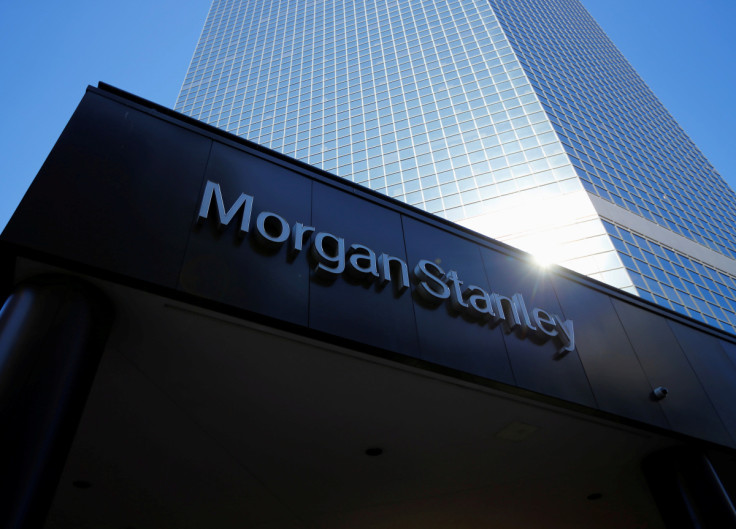Wall Street Investment Banking Slammed, As Execs Hope For More Confidence Ahead

Wall Street banks showed deep falls in their investment banking businesses in the fourth quarter, prompting thousands of job cuts, but executives are looking for signs that corporate CEOs are regaining confidence in doing deals again.
Morgan Stanley and Goldman Sachs reported a plunge in fourth quarter profits on Tuesday, as Wall Street dealmakers handling mergers, acquisitions and initial public offerings faced a sharp drop in their businesses in 2022. Rising interest rates roiled markets last year and global investment banking revenue sank more than 50% from a year-earlier quarter, according to data from analytics firm Dealogic.
Banks are looking for a peak in the U.S. Federal Reserve's aggressive rate hiking for confidence to return in boardrooms, along with a reduction in sharp swings in market prices.
"I am highly confident that when the Fed pauses (rate hikes), deal activity and underwriting activity will go up," said Morgan Stanley Chief Executive Officer James Gorman on the bank's earnings call.
Morgan Stanley CFO Sharon Yeshaya said she was anticipating the pipeline of deals would be more active when there is a "policy pivot of peaking inflation, something that allows the CEOs that are actually having those conversations in boardrooms to have more confidence."
She said CEOs were also looking for "price clarity and valuation certainty."
The plunge in investment banking has led to deep job cuts, with Goldman Sachs letting go of more than 3,000 employees in its biggest round of job cuts since the 2008 financial crisis while Morgan Stanley has cut around 1,600. In total, global banks are in the process of cutting over 6,000 jobs.
"CEOs and boards tell me they are cautious, particularly for the near term," said Goldman Sachs chief executive David Solomon who said that there was an adjustment period for investment banking to return, as investors or CEOs re-adjust their views about valuations after slides in the market.
"It takes a period for people to adjust," Solomon said, adding his experience was "4-6 quarters."
Solomon also said that the first sign to look for would be in the investment grade debt market.
His expectations would be for the "back half 2023" to be "meaningfully better," said Solomon, adding that he is heading to Davos where he saw commentary indicating that people were looking for a soft landing for the economy.
The World Economic Forum's annual meeting in Davos takes place this week. Two-thirds of private and public sector chief economists surveyed by the WEF expect a global recession this year.
Top bankers recently told Reuters that they see an M&A recovery in the second half of 2023. Big investors are sitting on piles of cash preparing to fund transactions, and large companies earning solid profits are looking to diversify their businesses, but they are waiting for economic uncertainty to fade.
If markets recover, Goldman's investment bankers stand to gain. The company has been the top global M&A adviser by revenue for the past 20 years, followed by JPMorgan, according to Dealogic data.
SHARPLY LOWER
Across the board, investment banking fees were sharply lower.
Morgan Stanley's revenue from investment banking business fell 49% in the fourth quarter while Goldman Sachs's investment banking fees fell 48%.
JPMorgan's investment banking unit saw its revenue down 57%, Citigroup Inc's investment banking revenue plunged 58% while Bank of America Corp investment banking fees more than halved. Investment bank Jefferies Financial Group reported a 52.5% decline.
That fed into a poor quarter overall, which saw the six largest lenders, JPMorgan, Bank of America, Citigroup, Wells Fargo, Morgan Stanley and Goldman Sachs report profits ranging from up 6% to down 69%. Strength in trading helped offset a slump in investment banking, while interest rate hikes by the U.S. Federal Reserve helped income.
On Wednesday, Goldman's shares fell 7.5%, although Morgan Stanley was up 6.7% as its earnings beat expectations on strength in its wealth business and trading.
Those six amassed a combined around $6 billion in reserves to prepare for soured loans, versus average projections $5.7 billion by Refinitiv. JPM set aside $1.4 billion, Wells Fargo $957 million, Bank of America $1.1 billion, Citi $640 million, Morgan Stanley increased its provision for credit losses to $87 million while Goldman Sachs provision for credit losses was $972 million.
© Copyright Thomson Reuters 2024. All rights reserved.





















